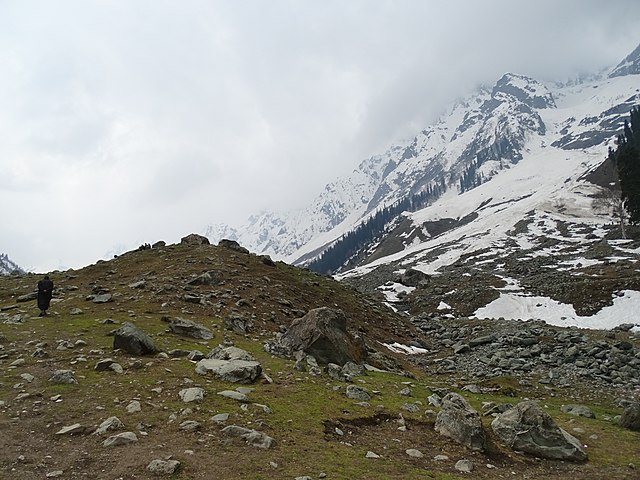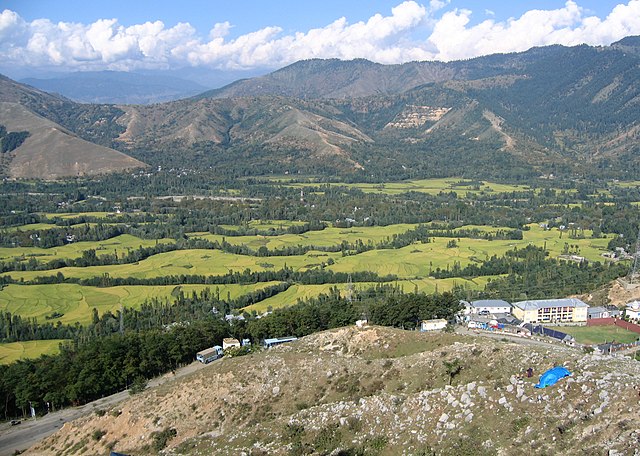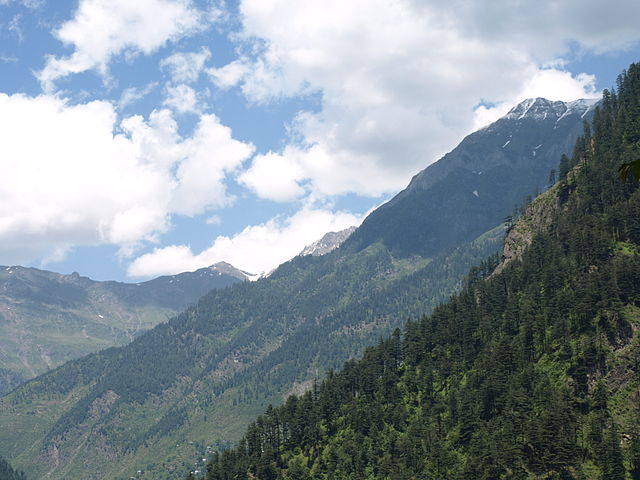
On Thursday, 30 January 2020, Pridi Banomyong International College (PBIC) will present a special public lecture by Assistant Professor Tosib Alam, Ph.D. of the Department of Economics, Central University of Kashmir, Green Campus Ganderbal, Jammu and Kashmir, India.
Assistant Professor Alam will speak on the Status of Social Science Research in India: Issues and Challenges.
The event will be held from 10am to noon on Thursday, January 30, 2020 in the PBIC Meeting Room on the second floor of the Pridi Banomyong International College (PBIC).
Assistant Professor Alam is a visiting scholar under a collaboration between the National Research Council of Thailand (NRCT) and the Indian Council of Social Science Research (ICSSR) of the Ministry of Human Resource Development, Government of India.
As its website indicates, ICSSR was founded by the Government of India to promote research in social sciences in the country. It aims to:
- Review the progress of social science research and give advice to its users;
- Sponsor social science research programmes and projects and administer grants to institutions and individuals for research in social sciences;
- Institute and administer scholarships and fellowships for research in social sciences;
- Indicate areas in which social science research is to be promoted and adopt special measures for development of research in neglected or new areas;
- Give financial support to institutions, associations, and journals engaged in social science research;
- Arrange for technical training in research methodology and to provide guidance for research;
- Co-ordinate research activities and encourage progrmmes for interdisciplinary research;
- Develop and support centers for documentation services and supply of data;
- Organize, sponsor, and finance seminars, workshops and study groups;
- Undertake publication and assist publication of journals and books in social sciences;
- Advise the Government of India on all matters pertaining to social science research as may be referred to it from time to time; and take such measures generally as may be necessary from time to time to promote social science research and its utilization.

Assistant Professor Alam earned a doctorate in economics from the Department of Economics, Aligarh Muslim University in Aligarh, Uttar Pradesh, India. He has authored and coauthored many articles, as well as two chapters in books that are available to TU students by the TU Library Interlibrary Loan (ILL) service.
At the Central University of Kashmir, he teaches courses on Public Economics; Indian Economy; and the History of Economic Thought.
In April 2018, an article which he coauthored was printed in The Indian Journal of Economics, University of Allahabad.
His subject was Impact of Financial Sector Reforms on Financing the Inclusive Growth in India: A Case of Uttar Pradesh.
Assistant Professor Alam’s article abstract follows:
The concept of Inclusive growth has been of major concern before the policy maker for ensuring the equal and sustainable development, which is highly required in the case of a country like India. Finance being a basic requirement for any development process, financial inclusion must have ensured for proper inclusive development. A proper financial inclusion can be ensured only through reforming the financial sector. Since last decade the Indian government has given high priority to ensure financial inclusion. In this scenario, the paper examines role of financial sector reforms in financing the inclusive development through ensuring financial inclusion in India. This is a case study of Uttar Pradesh, an important state of India. The analysis is done for the period of 2007 to 2017 (the period of major concern about financial inclusion) as this period includes the initiation of many government schemes for financial inclusion. The Data has been collected from the secondary sources, such as website of RBI and analysed with the help of appropriate statistical models (trend analysis and Kruskal Wallis (K-W) Test). The finding suggests that financial sector reforms have significant impact financial inclusion in India. Further. financial inclusion has served to advance the goal of inclusive economic development in India.
Last March, Assistant Professor Alam published another coauthored article, Social and Economic Status of Backward Muslims in Uttar Pradesh: Need for an Inclusive Policy?
Its abstract:
Since Independence, the performance of Muslims, particularly OBC Muslims, in education, organised private sector and more importantly in government decision-making institutions has remained unsatisfactory in Uttar Pradesh. It has resulted in a sense of neglect, and discrimination leading to some levels of social tensions within the community. To tackle this situation, the solution lies in facilitating interventions from both within and outside the political system. The article focusses on examining the socio-economic status, employment, educational status and political representation of Muslim OBCs. It attempts to evaluate issues related to 27 per cent reservation for OBCs, an advantage which has more or less bypassed Muslim OBCs. Finally, our study suggests measures for the inclusion of this category in the development agenda of the state government.
Assistant Professor Alam observes in the article:
In Indian society, people are socially differentiated through class, religion, region, tribe, gender and language. Caste performs a crucial task in the life of human existence even within the monarchy of religion. There are thousands of castes, each of which is based on traditional occupations and culture, and endogamous communities in India. Similar to the caste system in Hindu society, the hierarchical arrangement of social groups, traditional occupations and endogamy, Muslims are also divided into various castes (Zainuddin, 2003). Historically, an overwhelming majority of India’s Muslim population converted from the lower Hindu castes as a way to get away from social oppression and dominant socio-economic maladies. The notion of brotherhood and social equality of Islam attracted them, but it ultimately proved to be a mirage. The majority of Muslims in India face more or less similar kinds of inequality, discrimination and backwardness as those faced by the corresponding backward castes among Hindus (Krishnan, 2010; Mondal, 2003). Their traditional caste characteristics remained unchanged because of their deep roots in economic and social institutions. As a result, even after converting to Islam, their social position remained almost the same, and these groups continued to pursue the same traditional occupations. They faced deprivation before converting their social status and that continued after conversion as well (Yadav, 2013).
Central University of Kashmir
Central University of Kashmir is a public university located in Jammu and Kashmir, India.
Its motto is Knowledge is Power.
A Latin phrase meaning knowledge itself is power was written by the English author Sir Francis Bacon in the 1500s. The TU Library owns several books by and about Sir Francis Bacon.
A phrase in Latin meaning exactly knowledge is power was written in the 1600s in the book Leviathan by the philosopher Thomas Hobbes, who worked as an administrative assistant to Bacon when he was young.
Long before these examples, in around 900 CE or over 1100 years ago, an Islamic scholar, Imam Ali, is quoted as having said, Knowledge is power.
This citation is found in The Nahj al-Balagha (The Way of Eloquence), a collection of sermons, letters, and narrations attributed to Ali, cousin and son-in-law of Muhammad. It reads:
Knowledge is power and it can command obedience. A man of knowledge during his lifetime can make people obey and follow him and he is praised and venerated after his death. Remember that knowledge is a ruler and wealth is its subject.
(All images courtesy of Wikimedia Commons)


